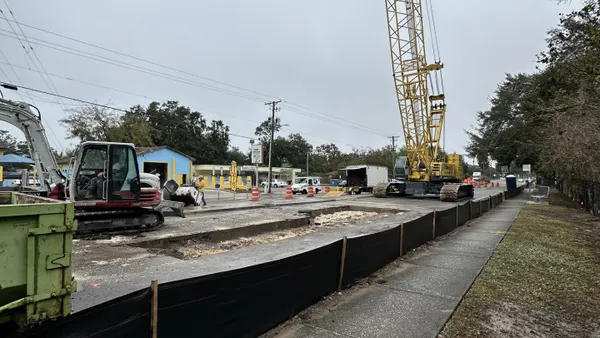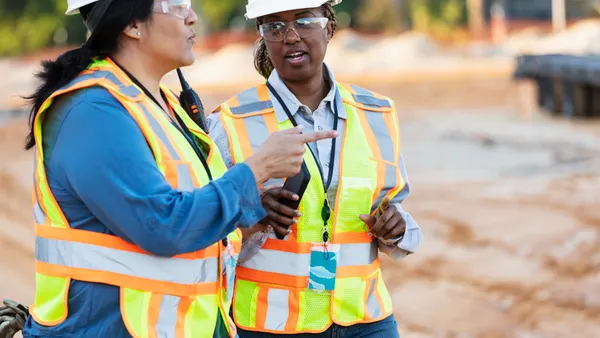Dive Brief:
- In a draft of its annual business plan, the California High Speed Rail Authority revealed that the construction cost of a bullet train between Northern and Southern California increased from $67 billion to $77.3 billion, and that the first phase will not be operational until 2029, four years behind schedule, according to the Los Angeles Times. The price tag for the total system, which is scheduled for operational in 2033, could rise to $98.1 billion, according to the authority.
- The new plan does not put all uncertainties to bed, however. The 2033 completion date assumes full funding, even though, according to the Times, the authority has struggled to meet a $40 billion funding gap, which will increase under the new business plan. However, if there was a secure funding obligation, officials said the cost of the project could be reduced to a little more than $63 billion. Meanwhile, it's unknown how much it will cost to defend legal actions by homeowners, businesses and others whose land is targeted for use or purchase by the authority, as well as how much it will cost to drill through mountain ranges in Southern California.
- The authority said it has made allowances for cost increases, emergency contingency spending and inflation, and has changed some practices that led to cost overruns, such as hiring contractors before the required land was purchased. But there is some positive news: The group highlighted in its annual report that the rail project has generated up to $6 billion of economic activity for California and 1,700 temporary construction jobs.
Dive Insight:
The authority announced in January that the price tag of the Central Valley portion of the bullet train system had risen to almost $3 billion, pushing that segment's cost up by 35% and raising the total cost of the project from $64 billion to $67 billion. When California voters first approved a bond measure in 2008 to finance a portion of the rail, the authority estimated the cost at $40 billion.
Despite the ongoing cost increases and delays, the project has had full support of outgoing California Gov. Jerry Brown. In his final address as governor in January, he said of the then-$67 billion project that problems were part of the process and compared the bullet train's issues to the challenges overcome by iconic state projects like the Golden Gate Bridge and Bay Area Rapid Transit System, both in San Francisco. After his speech, members of both political parties in the state legislature said the project needed more oversight.
The state's Republican congressional delegation has demanded a full audit of the project, and tried to block federal funding that could benefit the authority. Caltrain is electrifying lines that the bullet train will one day share, but Republicans were unsuccessful in permanently holding up money for that project.









